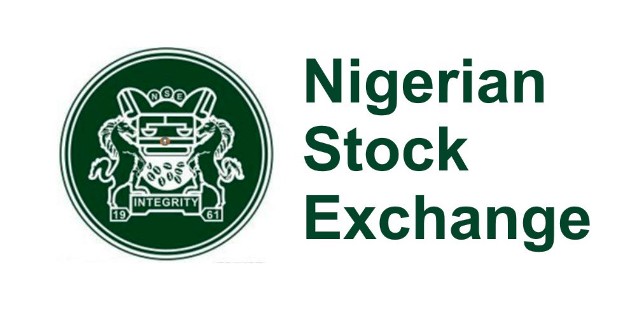Business
Nigerian Investors Net N966.7bn Gains In Jan

Investors in Nigerian equities netted N966.7 billion as capital gains in the first month of this year. This technically implied that investors had in the first month recouped more than half of the N1.71 trillion lost in 2019.
Benchmark index for the Nigerian stock market at the weekend indicated average return of 7.46 per cent, equivalent to net capital gains of N966.7 billion.
The All Share Index (ASI) – the value-based common index that tracks share prices at the Nigerian Stock Exchange (NSE) closed weekend at 28,843.53 points as against the opening index of 26,842.07 points for the year, representing an increase of 7.46 per cent.
This implied a net capital gain of N966.7 billion on 2020’s opening market capitalisation of N12.958 trillion.
The stock market had recorded negative average full-year return of -14.60 per cent for the 2019 trading year, equivalent to net capital depreciation of N1.71 trillion for the year. It had recorded negative average full-year return of -17.81 per cent in 2018.
The January 2020 performance represents a fillip for hard-pressed investors amid expectations that attractive valuations and supportive fiscal and monetary environments could halt consecutive price depreciation at the equities market.
The ASI, which doubles as Nigeria’s sovereign equities index, had closed 2018 at 31,430.50 points, down from 38,243.19 points recorded as closing index in 2017.
While the 2019 pricing performance marked the fifth negative closing in six consecutive years.
After a world-leading positive return of 42.3 per cent in 2017, the market had reversed to negative in 2018 with average full-year return of -17.81 per cent.
Sectoral analysis showed that the overall market performance in January 2020 was driven largely by gains recorded in the industrial goods and financial services sectors. The NSE Industrial Goods Index posted above average return of 14.39 per cent. The NSE Insurance Index appreciated by 4.91 per cent.
The NSE Banking Index rose by 4.75 per cent while the NSE 30 Index, which tracks the 30 largest stocks at the NSE, appreciated by 8.25 per cent, while the NSE Consumer Goods Index and NSE Oil and Gas Index, however, depreciated by 5.79 per cent and 4.19 per cent respectively.
Aggregate market value of quoted equities closed weekend at N14.857 trillion as against the year’s opening value of N12.958 trillion, an increase of N1.9 trillion. The difference between the benchmarked return of ASI and aggregate market value growth was due to the listing of BUA Cement during the month.
Most analysts remained cautious about the short-term outlook for Nigerian equities, after the two-year consecutive decline.
Analysts at United Capital Plc projected that Nigerian equities may deliver a modest average return of some 5.3 per cent in 2020, although the overall market outlook remains susceptible to external shocks and domestic policies.
In its 2020 economic outlook report titled “A Different Playing Field”, United Capital stated that its base case scenario sees equities market returning +5.3 per cent in 2020, driven by local demand for high-quality dividend-paying stocks and increased system liquidity.
The report carefully considered events in the international economic environment, including the effects of the United States-China trade wars on the global economy, as well as piecing together the stance of the world’s biggest central banks from their decisions over the course of 2019.
According to the report, the continued auction of high yield Open Market Operation (OMO) bills to Foreign Portfolio Investors (FPIs) may keep foreign interest in local equity market tepid amid fears of a naira devaluation and confidence deficit in the economy.
Business
Agency Gives Insight Into Its Inspection, Monitoring Operations

Business
BVN Enrolments Rise 6% To 67.8m In 2025 — NIBSS

The Nigeria Inter-Bank Settlement System (NIBSS) has said that Bank Verification Number (BVN) enrolments rose by 6.8 per cent year-on-year to 67.8 million as at December 2025, up from 63.5 million recorded in the corresponding period of 2024.
In a statement published on its website, NIBSS attributed the growth to stronger policy enforcement by the Central Bank of Nigeria (CBN) and the expansion of diaspora enrolment initiatives.
NIBSS noted that the expansion reinforces the BVN system’s central role in Nigeria’s financial inclusion drive and digital identity framework.
Another major driver, the statement said, was the rollout of the Non-Resident Bank Verification Number (NRBVN) initiative, which allows Nigerians in the diaspora to obtain a BVN remotely without physical presence in the country.
A five-year analysis by NIBSS showed consistent growth in BVN enrolments, rising from 51.9 million in 2021 to 56.0 million in 2022, 60.1 million in 2023, 63.5 million in 2024 and 67.8 million by December 2025. The steady increase reflects stronger compliance with biometric identity requirements and improved coverage of the national banking identity system.
However, NIBSS noted that BVN enrolments still lag the total number of active bank accounts, which exceeded 320 million as of March 2025.
The gap, it explained, is largely due to multiple bank accounts linked to single BVNs, as well as customers yet to complete enrolment, despite the progress recorded.

